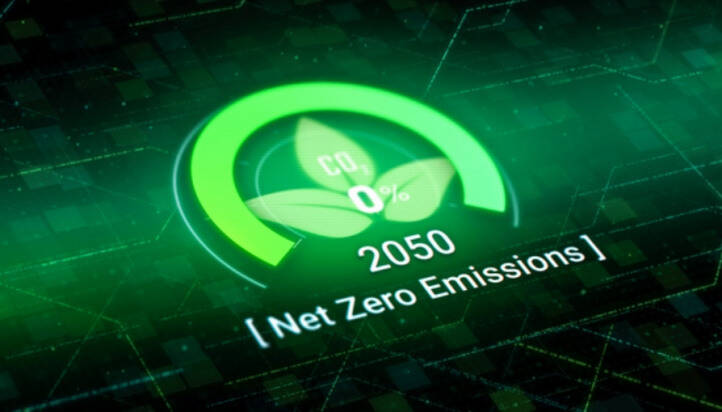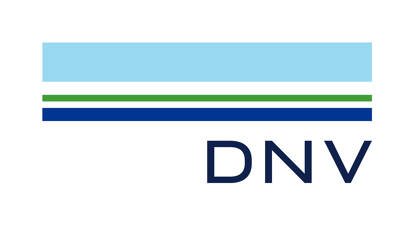Hear from DNV climate experts Shaun Walden and Colin Whitfield discussing net zero targets and decarbonization stress testing in our latest thought leadership article.

What’s the problem?
In any transition plan, it is crucial to include a compelling strategy that focuses on decarbonization and the attainment of net zero emissions. Decarbonization strategies highlight an entity’s efforts and proactive measures to reduce greenhouse gas (GHG) emissions, encompassing all aspects of its operations, supply chain, and offerings. Despite the widespread adoption of net zero commitments, global emissions show little signs of stagnating and the ambition of limiting global warming to 1.5°C compared to pre-industrial levels is becoming ever more a pipe dream.
The problem, as summarised by climate scientists James Dyke, Robert Watson and Wolfgang Knorr, is that “current net zero policies will not keep warming to within 1.5°C because they were never intended to”. The emerging consensus highlights a critical reality: while the concept of ‘net zero’ is admirable in theory, the current targets and strategies are failing to achieve the desired effect of curbing GHG emissions. This is attributed to key pitfalls in current decarbonization strategies and net zero policies, including:
- Speculative technologies – Many net zero strategies, particularly in the hard-to-abate sectors favour unpredictable technological mitigation options such as sustainable aviation fuel (SAF), carbon capture and storage (CCUS) and large-scale availability of green hydrogen. These options are facing numerous land, economic and technical challenges at scale and net zero targets reliant on these techno-optimistic mitigation options are more vulnerable to failure.
- The lack of interim decarbonization targets – The majority of net zero targets are centred on a 2050 timeline to align with the 2015 Paris Agreement. However, the lack of near and medium-term targets delays action and has let the approach of ‘burn now, pay later’ run riot in net zero strategies.
- Misalignment with organisational strategy – A lack of financial, human, technical and other resources has resulted in superficial net zero targets and tokenistic decarbonization strategies. For instance, some net zero targets and decarbonization plans overlook crucial scope 3 emissions, undermining the comprehensive approach required.
- Offsetting to reach long-term reduction targets – Carbon credits are often used as a means to achieve long-term reduction targets, but they should only be considered for neutralizing residual emissions once an entity has achieved its primary long-term reduction objectives.
- Missing Just Transition – Decarbonization strategies are misaligned with the principles of equity and justice; net zero targets and decarbonization strategies do not consider fair share and just transition.
What’s the solution?
Achieving a rapid and just transition to a low-carbon society requires resilient, feasible and fair net zero targets and decarbonization strategies. At DNV, we believe that improvement across all phases is key which is why we have developed an approach to evaluate and ‘stress test’ net zero targets and decarbonization strategies. Our approach is made up of three components and looks to assess net zero targets and decarbonization from the top-down and bottom-up.
- The first component analyses the existing decarbonization plan and net zero targets to measure alignment with leading standards and methodologies, chiefly the SBTi Net-zero Standard, ISO IWA 42:2022 net zero guidelines and key principles of the Transition Plan Taskforce disclosure framework. In this manner, we are able to identify core gaps and strengths required to carry out a decarbonization strategy and meet targets.
- The second component focuses exclusively on the mitigation pathways identified in a strategy. Science-based mitigation options are at the core of a robust decarbonization strategy. In this component, the technical feasibility and achievability of each mitigation option are evaluated and scored based on technical expertise, DNV’s Energy Transition Outlook (ETO), desktop research and external stakeholders.
- The third component is the development of an organizational or site-level techno-economical decarbonization strategy. A deeper analysis of the boundary conditions, such as resource availability and technology uptake, focusing on technical feasibility and achievability allows us to develop a clearly defined plan on how decarbonization pathways can be implemented and provide insights into the associated abatement costs.
While we recommend that the threefold process is adopted, these components can stand independently providing the level of assistance required depending on the maturity of the net zero targets and decarbonization strategy.
If you’re intrigued by the possibilities outlined above, and you would like a friendly discussion about how we can support you and your organisation in ensuring you have a robust net zero and decarbonization strategy, please reach out directly to the authors or send an email to: sustainability.uk@dnv.com.
Why us?
We are independent experts, specializing in assurance and risk management, driven by a purpose to safeguard life, property, and the environment. Our mission is to provide reliable insights and information to empower our customers and their stakeholders to make critical decisions confidently. Based on our extensive climate and decarbonization expertise with a wide range of companies, we have an in-depth understanding of net zero-related challenges and have designed a process to evaluate and test your strategies, which will provide constructive and critical feedback on your approach to ensure you are aligned with best practice. For more information, please get in touch with our experts at sustainability.uk@dnv.com.
?This is a thought leadership piece. For more information, please contact sustainability.uk@dnv.com.
By Shaun Walden, Climate Change Specialist and Head of Sustainability Services, DNV UK and Colin Whitfield, Climate Change and Sustainability Consultant, DNV UK
N.B. The information contained in this entry is provided by the above supplier, and does not necessarily reflect the views and opinions of the publisher


